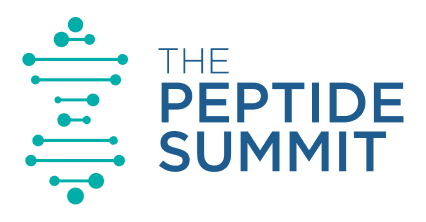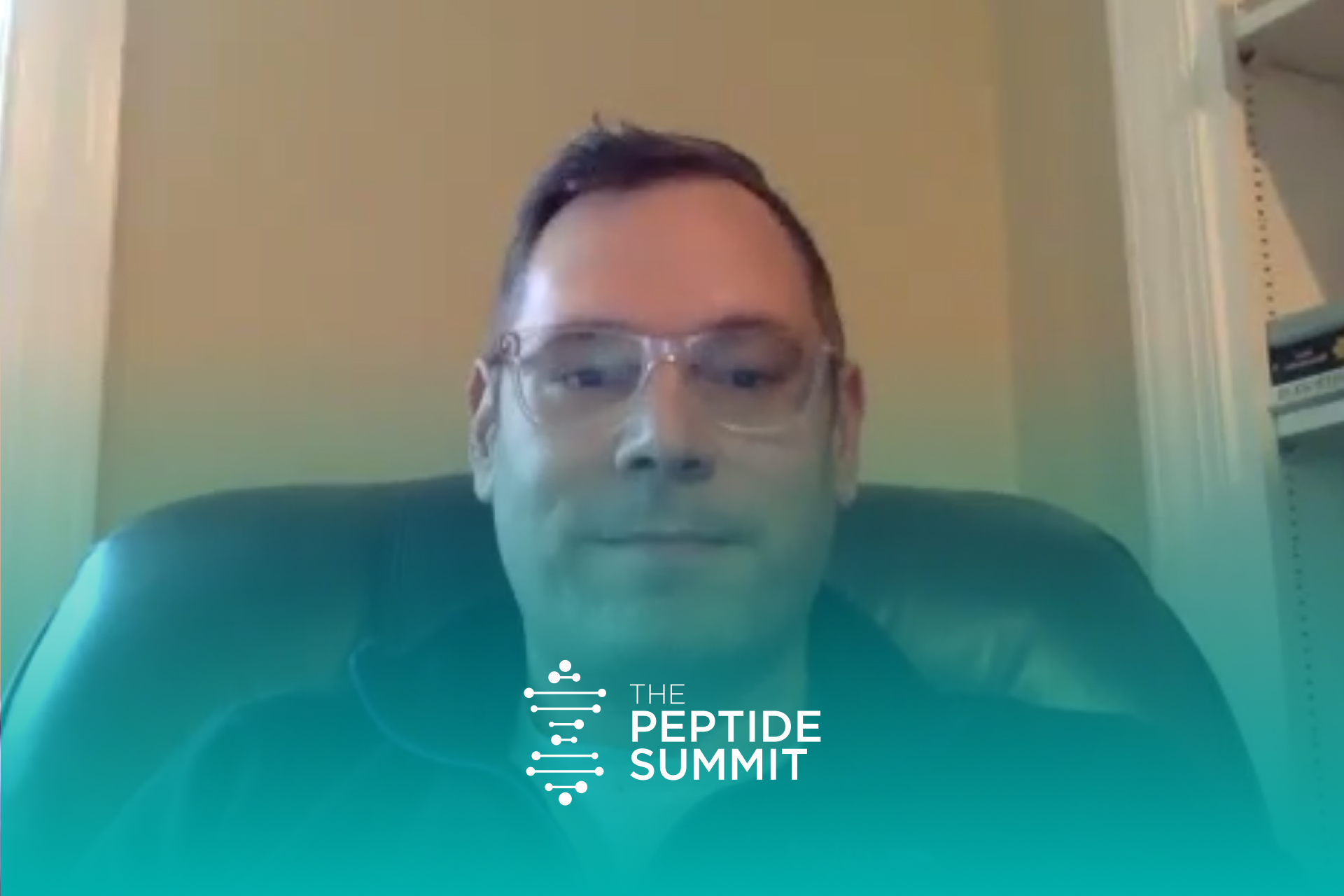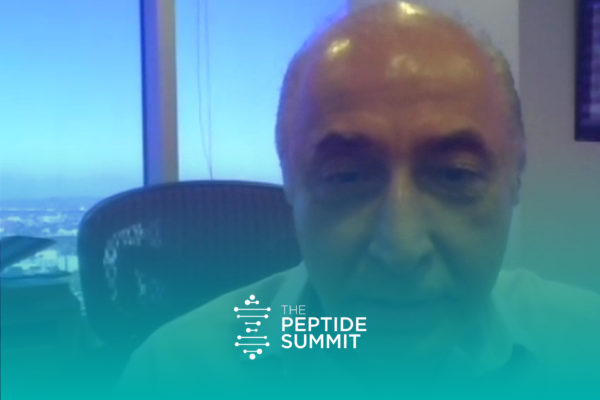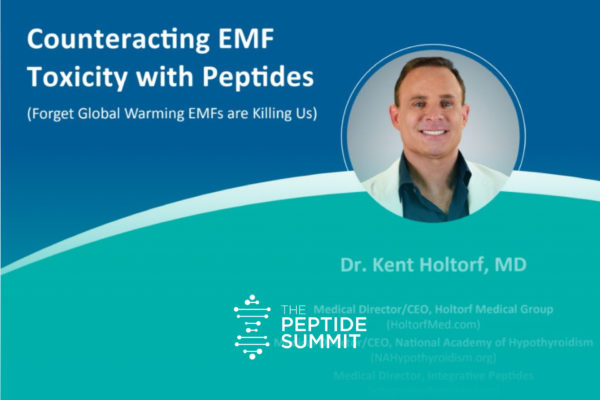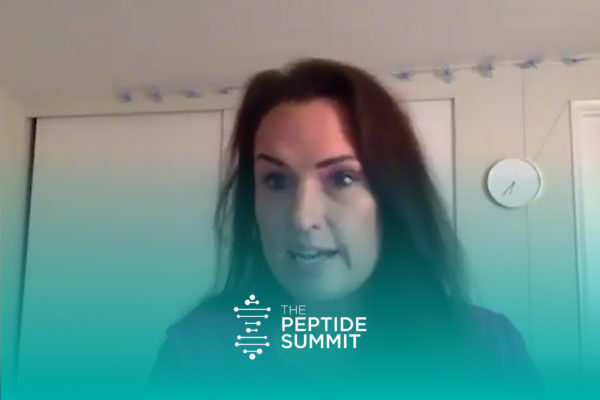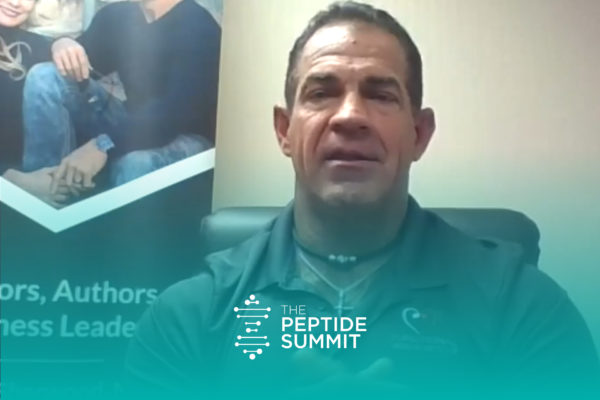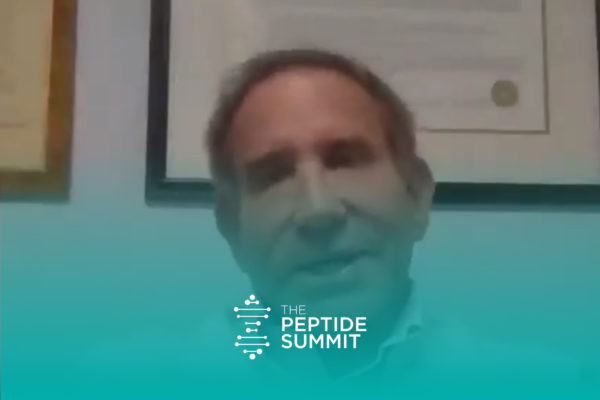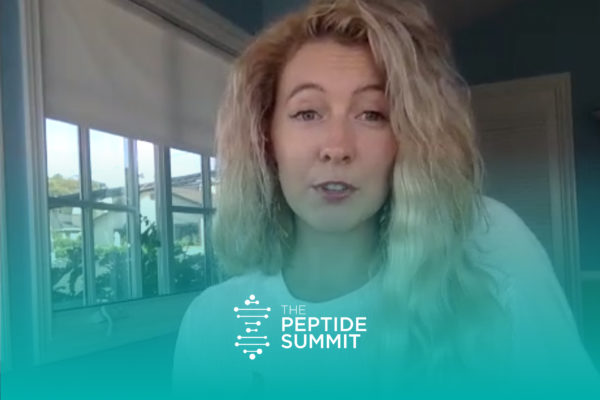Join the discussion below

Kent Holtorf, MD is the medical director of the Holtorf Medical Group (www.HoltorfMed.com) and the founder and medical director of the non-profit National Academy of Hypothyroidism (NAH) (www.NAHypothyroidism.org), which is dedicated to the dissemination of new information to doctors and patients on the diagnosis and treatment of hypothyroidism. He is... Read More

Afif Ghannoum is co-founder of the first total microbiome company, BIOHM Health (BIOHM), where he has commercialized consumer probiotics and microbiome testing kits that target the dual role that fungi and bacteria play in the digestive tract. Ghannoum co-founded BIOHM with his father, Dr. Mahmoud Ghannoum, who is one of... Read More
Join Biotech Attorney and CEO of BIOHM Health Afif Ghannoum to discuss how he and his father have teamed up to be the dynamic duo of mycology. Learn about drug non-responders, the role of biofilms, regional biomes, phages and more! Go beyond the gut and learn about the world of bacteria in this exciting overview!
Related Topics
Bacteria, Biofilm, Clinical Trials, Digestive Health, Drug Efficacy, Dysbiosis, Fungi, Gut Health, Microbiome, Mycobiome, Oral Health, Pain, Peptides, Probiotic, StressKent Holtorf, M.D.
Hello, this is Dr. Kent Holtorf with another episode of the Peptide Summit. Today we have a wonderful guest, Afif Ghannoum. He’s going to be talking about, is the microbiome the secret key to your health? Afif, thank you for being on and I just love your story and how you’re just so passionate about the gut. But a little bit about Afif, he’s cofounder of the first total microbiome company, BIOHM Health, that’s B-I-O-H-M Health, where he’s commercialized consumer probiotics and microbiome testing kits that target the dual role that fungi and bacteria play in the digestive tract. So, we’re actually going to talk about that, about fungi’s bad, right. So, we’ll hear more about that. He’s co-founder of BIOHM Health and one of the worlds leading minds in medical mycology. His father, father and son, they launched BIOHM Health in 2016 to bring science to consumers by creating products based on new understandings of the microbiome. So, they were really ahead of the curve. So, we’ll ask him more about that, but his dad, I think, is a full-time researcher.
Afif Ghannoum
Yup.
Kent Holtorf, M.D.
And then Afif is a biotechnology attorney… okay, that’s kind of like rocket scientist. He has turned his biotechnology innovations into consumer products that have sold in more than 27,000 retail locations in the United States. He’s also licensed technology to a global pharmaceutical company who has sold more than a thousand retail locations. A little bit about BIOHM Health, it’s the first total microbiome company, again founded in 2016 by Afif and his father and the mission is simple, to engineer elegant products and tests that address the total microbiome, both bacteria and fungi- and I want to ask you about viruses too- allowing consumers to maintain complete digestive health. And we’re finding, you know, it’s really exponential I think with the knowledge we’re getting on the microbiome. It used to be, you know, at least gastroenterologists are now… know what a probiotic is right? But we’re finding it’s just so key, and the more we learn, one the more we know we don’t know, but the more we know it influences so many things. And how did you- let’s just kind of start- how did you get interested in all this?
Afif Ghannoum
Yeah, so my father whose Dr. Mahmoud Ghannoum, he’s actually that scientist that named the microbiome, which is the fungal community in our body, and actually yesterday…
Kent Holtorf, M.D.
He came up with the name?
Afif Ghannoum
He literally named the microbiome. He did a clinical trial and he identified 101 native fungal organisms that live in our mouth. So, there had never been a name for native fungal community that lives, you know, in our oral cavity, our gut, even our lungs, all over our bodies. So, he called it the mycobiome, myco being the Latin for fungi and biome, obviously community in a pod.
Kent Holtorf, M.D.
Wow.
Afif Ghannoum
Yeah, so he’s… you know, to this day he’s a NIH funded researcher. He has the distinction of being the point one percent most cited scientist in the world over the last ten years, for his research…
Kent Holtorf, M.D.
Damn.
Afif Ghannoum
Yeah, he has over 26,000 citations of his work. And it’s all on the role of bacteria and fungi in our body. So, I got into this because he did a clinical trial in 2016 looking at the microbiome of Crohn’s patients. And what he was looking at was whether bacteria or fungi were working together in the gut, and that’s just what he found. Was that bacteria which we’ve all heard about and you know, back to the ACTivia yogurt days, we’ve always heard about good bacteria. But my father, having studied fungi all over the body, thought I bet it’s residing in the gut as well and it might be working with bacteria, and that’s what he found. He found that bacteria and fungi was creating what we call a biofilm. Which a biofilm, a lot of people… you may have heard of it, obviously you’re a physician, but a lot of your average people, they haven’t heard that term. But the term that is synonymous with that, that they have often heard about it is plaque.
So, dental plaque for example, is a type of biofilm. And so, what the problem with biofilms is, is that underneath that matrix are nasty germs that are causing issues. So, in your mouth, the reason you want to get rid of that plaque is it’s causing issues with your teeth, your gum health. Same dynamics happening in the gut. And so, what my father discovered with Crohn’s patients was that these bacteria and fungi biofilms causing serious digestive issues for them. So, he published his research, thousands of people across the world reached out to him and said… a couple things. One, I didn’t even know there was fungi in my gut, how do I deal with that? Is there a product you suggest?
And two, how do I get tested to see if it’s an issue for me? Right. We looked, and we’re like, that’s kind of interesting, no one was talking about good fungi. So, we created BIOHM, our probiotic, to actually target that pathogenic bacteria and fungi that had been causing issues with that biofilm. So, and at the same time, we literally took his testing protocols that he did for his NIH clinical trails to actually sequence the gut and he rolled that out as a test. So, to this day, every single… and we’ve done thousands and thousands of tests all over the United States, every single test is processed in his lab at Case Western School of Medicine.
Kent Holtorf, M.D.
Wow. Wow. And like so many bacteria, and harmful bacteria, they form biofilms that are so sophisticated, and they have multiple organisms in them and channels to bring in nutrients and signalling pathways to like ward off and it’s a big reason why these things are so resistant to antibiotics, right.
Afif Ghannoum
That’s a huge problem, the resistance factor. So, that’s one of the things my father has really specialized in looking, is how do you break down those biofilms. Because he seen it a lot in hospital borne infections, like biofilms in catheters. So, really, he spent maybe twenty years looking at how you break down the biofilms just in catheters. Because that’s, to your point, a big problem with antibiotic resistance, you know.
Kent Holtorf, M.D.
Yeah, and that’s why you have to take out the catheter, you can’t give enough antibiotics. Or lets say you have a valve, you know, gets in the valve, they have to take it out. And that’s like one thing there’s a peptide LL-37, it’s antimicrobial, but at very low doses even it gets into that biofilm and same with TB4-FRAG, it’s small enough to get in there. So, what is the strategy to get in there and break up that biofilm?
Afif Ghannoum
Yeah, so literally what we do is when you look at the, under a microscope, the bacteria and the fungi fuse together, right. And that becomes really difficult to… because it’s something called, like if you think of this being a bacteria and this being a fungi, what happens is the fungi release what are called hyphae where they literally dock and connect with the bacteria and then they become interlocked. So, we surmised if we can break that lock, we should be able to shred them pretty easily. Because that hyphae is the key, that docking action. So, we were able to do that.
Kent Holtorf, M.D.
It’s like the glue.
Afif Ghannoum
That’s the best analogy for it. It’s glue, or it’s like, you know, Velcro. The Velcro stickiness, right.
Kent Holtorf, M.D.
Now they don’t become a new organism, potentially do they?
Afif Ghannoum
No.
Kent Holtorf, M.D.
Because I know Dr. Fry, in his work, has found all these like half parasitic, half bacterial, you know, new species in so called chronic Lyme, which is often a lot of things. But I think so much starts with the gut, you know. Or it kind of becomes a vicious cycle where like, for instance, we were just mentioning, you look at the studies of all this, where hey, thin people have this type of bacteria, obese people have this, so just give this probiotic, you become thin. But it just kind of goes back to obese people will just… that environment is conducive to the bad bacteria, right.
Afif Ghannoum
So, you really nailed it. Because what we’re just starting to realize now is that it’s a two-way pathway, right. Like an easy example is the gut brain axis, right. There’s a lot of science where we say, oh, okay, you know, does your amount of stress actually change your microbiome, but what we started to realize was, wait a second, it might be your microbiome adjusting your stress levels and your ability to react to stress. So, that is fascinating. And you know, even a step further, what we’re seeing in clinical trials that we’re apart of, because my father and I also run one of the largest clinical research organizations for the, you know, big pharma of the world doing microbiome based clinical trials. We’re starting to see that it can literally impact your ability for a drug to work for you, based on the state of your microbiome. Which is really amazing, because if you think about it, you’re getting clinical trials… so, what a lot of companies are saying is, you know, when we’re doing these clinical trials to prove if a drug works, we need to screen these people first to see what their microbiome’s like. Because if we have non-responders because of their dysbiosis, or imbalance in the microbiome, it could actually give a false signal that a drug doesn’t work, right.
Kent Holtorf, M.D.
Yeah, and it’s not just absorption, right. It’s actually how that drug, what the affects are.
Afif Ghannoum
Yeah. And a lot of people don’t realize this, but there are people that we call non-responders to drugs. IT doesn’t matter, like some people… like when you take Aleve, right, we read the bottle, oh, adult take two capsules, should do the job. That’s completely generic advice. You absorb and process a drug completely different to how I do, right. So, what’s interesting is the microbiome and other facets of our body, but the microbiome importantly, we’re starting to see that the state of your microbiome can actually impact your body’s ability to process medication, you know what I mean. So, that’s very fascinating. So, we’re seeing it’s got a tie to pain, there are studies showing that if you have an imbalanced microbiome you can experience knee pain more seriously. It has a tie, obviously we talked about stress, even oral health. And for women it can be issue with things like vaginal health, like a lot of women will see when they take an antibiotic that they’ll get a yeast infection. The reason being, you’re getting rid of the complete bacterial community that controls and keeps the fungi in check and vice versa, right. So, it’s really amazing how much the microbiome is tied to.
Kent Holtorf, M.D.
And there’s so many microbiomes, right. You have skin, you have the between, basically every tissue, every area.
Afif Ghannoum
You literally have, there’s a vaginal microbiome, oral microbiome, lung microbiome, eye microbiome, gut microbiome, and each of these… and the way you need to think about the microbiome is it’s basically a community of organisms, right. And people think microbiome means bacteria, but bacteria is only one resident of that community. You have bacteria…
Kent Holtorf, M.D.
That’s where first start, you know…
Afif Ghannoum
Exactly. So, they’re probably, the most science it is fair to say has been around bacteria’s role, but that’s actually self fulfilling a little bit. Because if you look at the NIH’s research, the most funded research is around bacteria. So, we obviously know the most about that, but fungi’s starting to get attention. You mentioned viruses, the virome, that is now starting to get some interest. But the problem is, the state of our medicine, the way I talk about microbiome, it’s like what we knew about cancer research in the sixties, right. Like we knew this was something, we need to understand, but we are decades away from really…
Kent Holtorf, M.D.
It is so complex. And now you add the viruses even and the fungi, now it’s like exponentially, you know.
Afif Ghannoum
Yeah. So, even our sensitivity in detecting viruses in the microbiome reliably is still not there, you know what I mean. Whereas bacteria and fungi it’s much more established. So, that obviously will improve exponentially over time. But because of that, our understandings still can be a little limited, you know.
Kent Holtorf, M.D.
It was amazing, I was reading a study on a bacteriophage, a bacteriophage is basically a virus against a bacteria and it would be turned on when the butyrate producing bacteria, which is good, we like those bacteria, but when it got to a certain level it would turn on and kill that cell. So, there’s like not too much. So, it’s obviously evolved with us for millions of years. And I was like, wow. And so, really, so much is epigenetic, right. The gut will change your genes. Let’s say you have an Alzheimer’s gene, APOE4, but you can turn
it on, or you can turn it off. And, you know, basically I think our genetics are about twenty percent, and our epigenetics like eighty percent. So, the gut is… and I think I remember, like, you know, I don’t know twenty years ago or more it’s like all the foofy doctors, you know, look at the gut. And now everyone’s kind of catching up.
Afif Ghannoum
My dad always talks about he went to a candida symposium in actually LA, when he was at UCLA and it was around like the candida, I’m going to mess it up, but basically like the candida crisis. And the guy was presenting, my dad remembered, he told me like a lot of his colleagues were like this guy is out there, you know what I mean. Now you’re seeing it, it’s obviously something that… but that’s the way medicine goes, right.
Kent Holtorf, M.D.
If you’re a trailblazer you get the air hose, like the H. Pylori guy run out of town, and you know. Turned out he was right, so you can’t be too far ahead.
Afif Ghannoum
No, the key is staying where the science is and showing. But the good thing about microbiome, there is some very basic things that if you keep in mind you can make big differences. So, one of the things a lot of people ask, is well what impacts your microbiome? And there really are a number of factors that can’t change everything, but you can change a lot. So, number one, we’ve been talking about a little bit is your genetics, right. So, like, you know, the analogy I always use is, everybody knows that cousin that hasn’t been to the dentist in ten years and never has a cavity. But then we also know that a person that goes every six months on the dot and they constantly need dental work, right. It’s just their genetics, the way they’re…
Kent Holtorf, M.D.
Or kids, employees’ kids they’ve got cavities everywhere.
Afif Ghannoum
Right, right. And they could just be genetically predisposed to that. So, same with the microbiome, you may just be genetically predisposed to having a weaker, imbalanced microbiome. But even if that is the case, there are a number of factors you can control. So, for example, the massive one is diet, right.
Kent Holtorf, M.D.
Is what sorry, you cut out.
Afif Ghannoum
Is diet.
Kent Holtorf, M.D.
I hate that. I want to take a pill.
Afif Ghannoum
I know. We always joke like, because listen, we got people all the time, they take our test and you know, what products should I take? Listen, probiotics we have first in class probiotics, but they are dietary supplements. They should be a supplement to what you’re doing with your diet.
Kent Holtorf, M.D.
That’s interesting. Look at the name.
Afif Ghannoum
Right. Because all you’re going to do is, you know, it doesn’t help you, in fact it doesn’t help us if you think you’re going to take our product and then, oh, it didn’t work. No, no, no, this is… nothing’s going to work if you’re not taking a holistic view. Like we have a lot of people that take our microbiome test, our microbiome gut report, and these tests are not cheap. So, you think if someone’s taking a test, it’s because they’ve done everything else they can, and they’re sort of like looking for a last answer. And what we see is, because they fill out a questionnaire, is fifty or sixty percent of people who take our test, they eat fast food at least once a week, right. So, there’s some very basic things that people can do without ever getting to what I’d say more like aggressive or exotic things to improve.
Like it’s not some secret herb from the Amazon, it’s not some amazing one sized fits all product, it’s are you mindful about the way you eat, and it’s not rocket science. My dad wrote a best-selling book called Total Gut Balance, and he walked through it. A lot of it boils down to mostly plant-based diet, lean meats, fishes, very good prebiotic type fruits and vegetables, things like sweet potatoes. Why? Because it keeps your system moving and you can really adjust and optimize your microbiome. But even if you’re taking care of your diet, a lot of people come to us and say they eat well, and they do, you know genetically I don’t have an issue, but I really have bad digestive issues. We say, are you stressed? How do you sleep? And what they are totally overlooking is lifestyle as a factor of microbiome. And stress can really impact…
Kent Holtorf, M.D.
Oh, yeah, we’ve… stress is a killer. They think it lowers the immune system, but it actually modulates it, causes inflammation, weight gain, insulin resistance, you age faster, just everything, yeah.
Afif Ghannoum
Yeah. So, and what’s funny is we deal with some UFC athletes, Olympic athletes, body builders, and they’ll have the same issue. And they’re eating well, obviously, they’re doing everything they can with their exercise, but what they don’t realize is they’re stressing their body in a different way, they’re over exercising, right. And so…
Kent Holtorf, M.D.
Yeah. We’re seeing more and more of that where it’s, you know, super athletes they over exercise or do all these marathons and all of a sudden, they just crash.
Afif Ghannoum
Right, they’re putting so much strain on their body. Those are three huge factors. And, you know, things like alcohol can cause issues. So, what I always tell people is listen, you need to be a little bit self aware and understand what are the tings that you can do to optimize your microbiome health, right.
Kent Holtorf, M.D.
Now in terms of eating well, from what I’ve read, our variety of foods is just, from evolutionary, what we eat is just so narrow and then you’ve got the foods are so depleted of nutrients and they’re pesticides and you know, phosphate and other stuff in there. So, it’s… even if you eat great, is it still good enough?
Afif Ghannoum
To me, it’s the 80/20 rule. For the vast majority of people, they don’t really have to start worrying about that until they’ve improved a lot in their diet, right. So, those things, like when you’re eating mostly plant based, when you’re eating lean meats and you’re still seeing issues, that’s when, alright well maybe you can be much more mindful about organic sources, nutrient density, and the way you’re cooking and preparing the foods. But for a lot of people what we’ve seen, that’s not even the issue yet.
Kent Holtorf, M.D.
It’s the extra ten percent, or whatever.
Afif Ghannoum
Yeah, and I’ll give you another example where, you know, it’s the boring answer, but it’s boring because usually it’s right. It’s all about moderation, and I’ll give you a very specific example.
Kent Holtorf, M.D.
Moderation’s for the other guy.
Afif Ghannoum
Yeah, not me, right. So, I’ll give you an example of that. We had a cohort of women that took our gut test, complained of very bad digestive issues. When we looked in their data we saw they had an elevated amount of something called Zygomycota, which is a very aggressive fungi. My dad would typically only see it in immunocompromised patients, like HIV patients, cancer patients. So, at first my dad thought maybe these are undiagnosed, you know, cancer or something like that. But there was enough of them that we thought that’s unlikely and these were all like young, vibrant women, right. Like look out of a yoga catalogue, right. And when we dove a little deeper into the data what we found was almost universally, they were entirely cutting out carbohydrates and dairy. Why? Because they’ve been told carbs are not good for you, dairy is not good for you, right.
Kent Holtorf, M.D.
Yeah, they’re probably trying to get rid of all of their… if they’re trying to get rid of the yeast, they’re growing the yeast.
Afif Ghannoum
Actually, they’re building the yeast because dairy and carbs, in moderation, are actually very good prebiotic, probiotic foods. So, they’re modulating your gut and keeping everything in check. So, when they removed those, all of a sudden, this Zygomycota which is sort of harboring under control had a chance to spiral out of control. And guess what happened? They introduced a little bit of dairy, a little bit of carbohydrates back, those issues went away.
Kent Holtorf, M.D.
Wow, that could be like too diligent, too good.
Afif Ghannoum
Yeah.
Kent Holtorf, M.D.
Almost an addiction maybe, you know.
Afif Ghannoum
Yeah. So, I heard a woman say this and it made a lot of sense to me, is don’t let wellness get in the way of your wellness, right. Because it’s very easy, and I sympathize with a lot of people because you can read five different health books and get fifty different approaches.
Kent Holtorf, M.D.
Oh, yeah. The diet of the month, this is, you know. High carb, you know, we went with the food pyramids flipped upside down, you know…. yeah.
Afif Ghannoum
Right and I think for a lot of people I would keep it to some very basic tenants which would make a big difference for a lot of people. Now if you’re still dealing with issues, that’s where… come talk to us, maybe you do get your microbiome tested, maybe you do try one of our products. But before that a few things people can do is, one, really look at your diet, because that’s for a lot of people an area. The other is start to be thoughtful about the type of, especially over the counter medications that you’re taking just as an everyday thing, you know. So, listen, sometimes you need medication, there’s a medical issue, you need to take it. But for a lot of people, I used to be one of these people years ago, I would just take an antacid and I didn’t realize I was absolutely destroying my acid levels, my body’s ability to produce acid. Which is very important, people think acid’s a bad thing, acid’s what keeps us safe from things like E.coli, like you need good acid production.
Kent Holtorf, M.D.
There’s a reason that we make it and we almost have to protect the stomach, which one is BPC-157, but is that why would your body go through all this effort to make it if it was bad for you.
Afif Ghannoum
Yeah, so the problem is your body goes into overdrive when, like for me, I was eating things like pizza late at night, a lot of it. And my body would just go into overdrive in acid production, so I would use Zantac or something and it would bring it back under control. And then I sort of had this moment like, well wait a second, maybe I just need to be more thoughtful about how I’m eating and that controls the acid, that way I’m not adjusting it. So, it’s things like that where a little bit more mindfulness and being thoughtful. Because, you know, we have people and they’ll often meet me, and they’ll say I bet you’re anti-antibiotics. And I say, no, I’m like the opposite. Because sometimes you have an infection, you need to take an antibiotic, but you don’t need an antibiotic for anything, right. And that’s sort of like, we’re probably coming out of that pendulum. Where it used to be…
Kent Holtorf, M.D.
Oh, yeah. Well people, you have to give an antibiotic or else they’re really mad and they never come back to you if you didn’t give them the antibiotic. What type of microbiome do you see in people like on proton pump inhibitors or something long term?
Afif Ghannoum
So, you’ll see people that have very high levels of candida, you’ll see, you know, very high inflammation marker organisms, you’ll see just a lot of reports of digestive issues. And again, it builds on itself, because a lot of times it’s like the ultimate tough part of this is when people don’t feel well, they often don’t eat well because they want some comfort, they’re not going to exercise, right.
Kent Holtorf, M.D.
Or if you don’t sleep, it’s like you wake up hungry, and… you know.
Afif Ghannoum
Yeah. And then the other thing that we’ll see is that people that are genuinely, they’ve been trying to do the right things and they’ll say, I’m just so frustrated because I was trying to eat plant based and I was trying to introduce and I just felt bloated all the time, it must just not work for me. What they don’t realize is, your body after so long of not eating like quote unquote proper foods, it no longer has the enzymes built up to properly process leafy green vegetables and really plant based type diet. So, your body is just like overwhelmed trying to process it.
Kent Holtorf, M.D.
If you cook the vegetables, does that eliminate the enzymes?
Afif Ghannoum
That’s a great question, I’ve never been asked that. Usually the less processed the better, but with that being said, usually what we find is if people stick through it for a couple
weeks it all sorts itself out because your body does, your body’s very, very adaptive and very able to rebuild. But a lot of times people after a few days just feel bloated, they don’t feel comfortable and they stop, they’re like, must not be, you know, that’s only making me feel worse. Sometimes it’s like you got to give your body a minute to process. It’s like you hear people who go through caffeine withdrawal and it’s like two weeks they’re miserable, but then, you know, they feel amazing. They actually have a lot of energy, because they were just so tied in with caffeine.
Kent Holtorf, M.D.
And with the fungi, I know we’re at limited time, what are maybe some three things that people would be very surprised about fungus in the gut?
Afif Ghannoum
Great question. So, one of the things that you’d be very surprised is that fungi is about, if you look at fungi under the microscope, it’s about ten X bigger than bacteria.
Kent Holtorf, M.D.
Amount?
Afif Ghannoum
Physically. So, the amount, there’s actually more bacteria, but for every… one fungi is about the size of ten bacteria. So, it’s an enormous player in the gut. The other is you hear about boogeyman of the fungi world, like candida, right. Candida, oh, do you want to have candida? Most people would say no, no. But actually, for the vast majority of people, candida is actually a normal part of your ecosystem in your gut. But when it’s at the normal levels it can aid in digestion, nutrient absorption. The problem with candida is when it overgrows, then you can have some serious issues, leaky gut, candida actual infection candidiasis.
So, people don’t realize though that when they’re kept in place, they actually have a great role to play. The other thing that people don’t realize is that it’s not about growing or getting rid of any one organism, it’s about maintaining total balance in your gut. Because the analogy I always use is, it’s like a shark. You wouldn’t want to be in a pool with a shark, but if we remove all the sharks from the ocean, there’s going to be big consequences because they play a role in the ecosystem. It’s the exact same in the gut. What we see is when we try and remove things, other organisms start spinning out of control, it’s that…
Kent Holtorf, M.D.
Because I know a lot of doctors, I’m guilty of this too, is putting people on just antifungals just thinking that let’s get rid of all the fungi in there, right. But sounds like that’s a wrong maneuver.
Afif Ghannoum
It depends. We’ll have people, like we just had some functional medicine physicians talking to my dad about this, is when you’re looking at what is the right anti-fungal treatment, is it Nystatin, Diflucan, you know, there’s so many that we find that fungi is still not really understood in the medical community. So, it’s been sort of scorched earth approach to like just get rid of it, and that’s really the best approach.
Kent Holtorf, M.D.
And like the infection disease doctors think it’s not a problem unless you have, you know, no immunity and oh, if it was a problem it would be all in your blood and you’d be dead. So, don’t bother with it, you know.
Afif Ghannoum
So, it’s funny because what we find is that’s a classic… well it’s only really an issue if you’re immunocompromised. That typically what people think I mean when I say that is if it’s something serious, like HIV, like cancer, like you know, a severe respiratory infection, yeah, you’re now immunocompromised. But there are many other ways you can be immunocompromised, you mentioned one of them. When you’re stressed you are immunocompromised, when you get a little bit of a cold, all of a sudden, you’re immunocompromised. And so, what happens… the elderly are generally immunocompromised.
Kent Holtorf, M.D.
Yeah, age, any chronic infection, autoimmunity, toxins, pesticides, yeah… inflammation.
Afif Ghannoum
Exactly. So, what happens is it is generally true that a lot of these organisms are not going to cause you an issue if you’re not immunocompromised, the problem is if your system gets knocked out of whack, you haven’t gotten a lot of sleep, you know, something’s off, that’s where you could be presented with a problem. So, the way you need to look at your microbiome, it’s very much like oral care, is that it’s an ongoing dynamic maintenance, right. Because think about, your oral… like if you get a cut on your skin, if you clean it, you put a bandage, you can pretty much isolate it. It’s not going to be sterile, but you can keep it pretty undisturbed. If you have a cut in your mouth, you have liquid going in there, you have food, you have saliva production, you have all sorts of things impacting that cut potentially. It’s very difficult. Same with your gut, you’re getting food, you’re getting all sorts of bodily fluids coming through. It’s a very dynamic area, where it isn’t as easy to keep isolated. So, that’s why like you just need to continuously think of oral maintenance, my gut maintenance, where it’s just about ongoing hygiene.
Kent Holtorf, M.D.
Just a quick question about oral microbiome. You know, people like want gum health and have mouthwashes every night. What’s your thought? You’re killing probably all the good bacteria too.
Afif Ghannoum
So, the good thing is your oral microbiome and actually your gut microbiome too, will really quickly repopulate, it’s very difficult to basically completely sterilize. Like that’s just… like when you see things like kills 99.9% of germs, those are done in lab tests, right. It’s very different…
Kent Holtorf, M.D.
They’re not in biofilms, yeah.
Afif Ghannoum
Correct, right. So, typically it’s really difficult to do that. Now with that being said, I still don’t think it makes sense to just non-stop use mouthwash. We actually own a mouthwash company. Like I say that and part of it is just understanding that not all germs are bad, right. It’s about controlling overgrowth of germs, it’s about controlling when you become immunocompromised, are you controlling that germ load, is what we call it.
Kent Holtorf, M.D.
And sometimes I’ll be very aggressive, and someone has a terrible microbiome and just give them like multiple antibiotics, antifungals, and then- for a very short period of time and then give tons of probiotics, you know. My thought is, knock the bad ones down, because the good ones won’t be able to survive because they’re getting out competed, I don’t know, whatever, it’s theory. And then just flood them with probiotics.
Afif Ghannoum
Well, the other thing though that we are big advocates of are prebiotics, right. So, prebiotics, the way I explain it is if your gut is a garden and probiotics are the seeds for just growing an awesome garden. Prebiotics are dietary fibre, which is literally like putting amazing topsoil in their gut. So, that garden can really grow, right. It’s really not that much of an analogy, because literally that dietary fibre sits in your gut, it’s really hard for our bodies to process, it starts to ferment and probiotics are literally using it as food and actually lowers the pH, so it makes it a much more hospitable environment for your probiotics to grow. So, after somebody takes an antibiotic, we’ll often say like probiotics are obviously great, but just get that topsoil back in there, the prebiotics to start rebuilding the fauna, you know.
Kent Holtorf, M.D.
Yeah, because I’ve seen some studies on like the, the AK, actino… so like with neurodegenerative diseases, but I don’t think you can get it as a probiotic, but if you give a prebiotic that seems to allow it to flourish.
Afif Ghannoum
Yeah, because your gut already has good bacteria and good fungi in it, it’s just a matter of fostering it. And yeah, you can supplement it with probiotics, but like just encouraging the growth of what’s in there is a giant jump start.
Kent Holtorf, M.D.
So, do you recommend prebiotics even over probiotics?
Afif Ghannoum
So, we recommend using them in tandem, that’s way you’re sort of again, like laying the foundation and then feeding the garden and really kind of giving a boost to what’s already going there. I think if all you were doing… like our most popular product is actually Super Greens product. So, it combines probiotics, prebiotics, enzymes, super greens. The reason people love it…
Kent Holtorf, M.D.
What was the name of that again?
Afif Ghannoum
BIOHM Super Greens. People love that because they’re getting it all in one fowl scoop, is what I…
Kent Holtorf, M.D.
Yeah, because people get capsule fatigue, you know.
Afif Ghannoum
Yeah, a lot of people, you know. And even, it’s great for, I have a six and four year old, I’ll just mix it into their yogurt, they’re not even going to notice, right. Because kids, even like you said, I’m not a big capsule person, I’d rather mix something in a powder. It’s just easier. Otherwise, you’re taking like five, six different capsules, that gets old pretty quick.
Kent Holtorf, M.D.
Yeah, five or six, it’s like 80, because you find a new something, I got to take that! And you’re like oh, my gosh and you’re nauseous and all that. So, your difference between your other products?
Afif Ghannoum
Yeah, so our number one seller is the BIOHM Super Greens, just because it’s that all in one product. We also have BIOHM Super Reds which is 14 different super red products, things like beets, sweet potatoes, pomegranate, very high antioxidant ingredients that you get more in reds, like berries…
Kent Holtorf, M.D.
Now is it the antioxidant properties that’s good for the gut or is it also something else that they’re a great prebiotic?
Afif Ghannoum
So, we also add prebiotics in there, functional mushrooms, probiotics, so that’s the Super Reds and the Super Greens. And then we do have more heavy-duty probiotics, which are 30 billion CFUs, combines the good bacteria, the good fungi, even digestive enzymes. So, you know, we just have also a microbiome test called the BIOHM Gut Report, and that’s where people are like, listen, I’ve tried a million things, I’m not sure what I need to be optimizing. So, they take that test, it’s an at home test, like 23andMe, and they get their results. And then what people love is they actually get actionable recommendations. So, it tells them these are the foods you need to avoid, these are the foods you need to eat, you know, based on their…
Kent Holtorf, M.D.
Really?
Afif Ghannoum
Yeah, based on their microbiome and the questionnaire that they fill out, you get lifestyle recommendations and they actually get the option to talk to one of our nutritionists and walk through all their results.
Kent Holtorf, M.D.
That’s cool. And can you, when you look at someone’s tests results, I imagine you can probably tell their lifestyle, their level of health, what they eat, you know. Like let me guess… you’re… you know.
Afif Ghannoum
Well, you can see a lot of, especially when you’re looking at their questionnaire that this is a very high stressed person that needs to get that under control otherwise the other things are really not going to make a difference. And sometimes, we’re all busy, we’re all living our own lives, sometimes you need someone to objectively look at what you’re doing and say, listen, here’s what you need to concentrate on, and you’re like, okay. So, yeah, so for us the science is critical. It’s still to this day my father is NIH funded, he jokes he’ll die in his lab, because he just loves it. And for us it was important to sort of bring that science out of, you know, ivory tower of his lab to you know…
Kent Holtorf, M.D.
Yeah, and what are some of the fungi you have as a probiotic? Like Saccharomyces boulardii…
Afif Ghannoum
Saccharomyces boulardii. So, we have our own strain.
Kent Holtorf, M.D.
Which makes a difference, right?
Afif Ghannoum
Yup, no, one hundred percent. So, and we went through and did what’s called grass analysis, which means we’ve confirmed it’s generally regarded as safe. That’s not a given. Just like any probiotics strain, if you are just using any strain, it could have antibiotic resistance, it can have some other issues.
Kent Holtorf, M.D.
I know the FDA is cracking down on that.
Afif Ghannoum
Yeah, so we went through that process for every one of our strains, because for us it’s very important to know. Even down to doing the DNA genotyping of the strain. So, again, we just brought on the former global head of nutrition from Reckitt Benckiser, we have a new clinical director of science who came from one of the biggest probiotic ingredient companies. So, everything we’re doing is really based in would this pass muster in my father’s NIH lab, you know.
Kent Holtorf, M.D.
Impressive, that’s impressive. And all the publications and I mean, that’s where it is. Because yeah, one strain may be very different than another, right. But most people look at the label, it’s got the same thing, but not necessarily so.
Afif Ghannoum
And I sincerely say this whether you look at BIOHM or not, few pieces of advice when people are looking at probiotics or any dietary supplements. Where is it made? That’s very important. Is it made in the United States? Why do I say that? It doesn’t mean you can’t get a good product that’s not made in the US, but it’s a lot easier to trace quality if it’s in the US. You know, FDA audited facilities. The next is what is the product doing to make sure the strains are alive when they get into your stomach, right. So, for example our bottles are heat resistant plastic. That’s important because heat can kill organisms, right. We also coat our probiotics so that they’re protected from the acid as it’s going into your stomach. So, you always take a look and see what is the product doing to make sure these are alive when they get into your gut.
Kent Holtorf, M.D.
And because I worry about like the refrigerated ones because yeah, they’re refrigerated when you get out of the health food store, what about the truck and all that. And do you use spore based or?
Afif Ghannoum
We don’t have spore based. So, there are some nice spore-based options, but again, ours was formulated based on what strains we found had the best activity against biofilms, and that’s how we formulated it.
Kent Holtorf, M.D.
Because biofilms we’re finding is the problem. That’s nice. And where can people find your product?
Afif Ghannoum
Best place is our site, BIOHMhealth.com, B-I-O-H-Mhealth.com. And you know, they can check it out and, or BIOHM Health on all the social media channels. And they can always feel free to reach out to me and I’m always happy to answer questions.
Kent Holtorf, M.D.
Oh, that’s nice. And you got the testing as well.
Afif Ghannoum
Yep, yep. And it’s all off of our site.
Kent Holtorf, M.D.
That’s great, that’s great. Hey, we’re out of time, I know we got a kind of hard stop. We covered a lot. I think this was really great.
Afif Ghannoum
Yeah, no. I really appreciate, you know, I appreciate everything you’re doing, and I appreciate allowing me to share a little bit more on the microbiome.
Kent Holtorf, M.D.
Yeah, and new information, you know, about the fungi. We’ve always been told, hey, fungi is bad, right. Everything you say makes sense.
Afif Ghannoum
Well, it’s going to be an exciting few years coming up in the microbiome.
Kent Holtorf, M.D.
Sound wonderful. Hey, thank you so much for taking the time, it’s been great. And have a great weekend.
Afif Ghannoum
Alright, you too. Take care.
Kent Holtorf, M.D.
Alright, thanks a lot.
Afif Ghannoum
Bye.
Downloads
